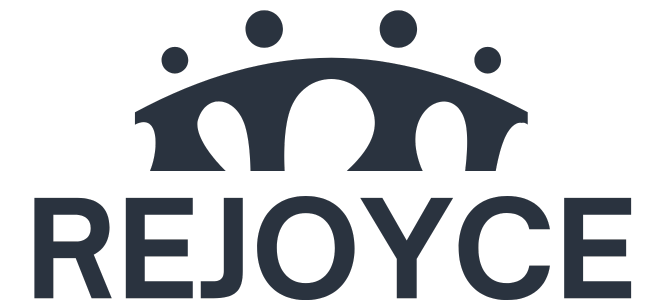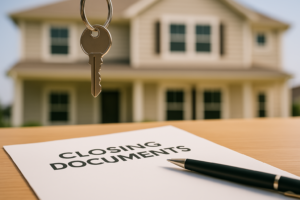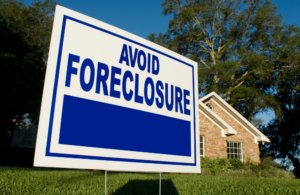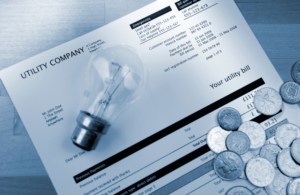12 Essential Steps for Buying a Home in New Jersey
Navigating the various assistance programs available in New Jersey can be simplified by breaking the process down into these essential steps:
Loan Application: Immediately after determining your needs, if you require financial assistance, start by applying for the necessary financing. Choose a reputable lender and provide all pertinent information regarding your assets, income, debts, and credit history.
Home Inspection and Repair Resolution: For housing assistance, ensure your home undergoes a thorough inspection. This is crucial for identifying any repair needs. Address these concerns promptly by negotiating with service providers or the seller.
Due Diligence: Conduct due diligence by arranging necessary inspections, evaluations, and appraisals. This step is vital to ensure the property or service you are engaging with meets all required standards.
Appraisal: If applying for housing assistance or a mortgage, a property appraisal will be required to confirm the value of the property. This step ensures the property value justifies the loan amount.
Loan Approval: Once appraisals and inspections are complete, your lender will verify your information and decide on your loan application. This approval is crucial for moving forward with your housing or financial assistance.
Engage a Closing Attorney: For housing-related assistance, engage a real estate attorney to handle the closing process. This includes checking the title, preparing necessary paperwork, and managing the transaction’s financial aspects.
Termite Inspection: If you’re receiving housing assistance, ensure a termite inspection is part of your home inspection. Address any infestations immediately to maintain property integrity.
Homeowner’s Insurance: Arrange for homeowner’s insurance if your assistance involves purchasing a home. This insurance is typically required by lenders and protects your investment.
Re-Inspection of Property: Before finalizing any housing assistance, re-inspect the property to ensure all necessary repairs have been made. Conduct a final walk-through to address any last-minute issues.
Utilities Transfer: If you’re moving into a new home through assistance programs, arrange for the transfer of utilities to your name. Coordinate with the previous owner or landlord to ensure a smooth transition.
Submit Applications: Apply for relevant assistance programs such as LIHEAP, USF, and weatherization. These applications often require specific documents and information about your financial status and household.
Follow Up and Utilize Benefits: After submitting your applications, follow up to ensure they are processed. Once approved, utilize the benefits as instructed. For ongoing assistance, maintain communication with the service providers to ensure continuous support.
By following these steps, you can efficiently access the various assistance programs available in New Jersey. These programs can provide significant support in managing utility bills, securing housing, and overcoming financial challenges.
For detailed information on specific programs and application procedures, visit the New Jersey Department of Community Affairs website.
As part of our commitment to supporting low-income families and individuals in New Jersey, we at Rejoyce Community want to ensure that our community members are aware of the various assistance programs available to them. This guide provides detailed information on several programs that can help with utility bills, weatherization, medical emergencies, and more.
Equal Payment Plan
The Equal Payment Plan (EPP) by Jersey Central Power & Light (JCP&L) allows residential customers to manage their electric bills more conveniently. Customers are billed one-twelfth of their estimated annual usage each month, which helps avoid seasonal spikes. There’s no additional charge for this service. To apply, visit FirstEnergy’s website or call 800-662-3115.
Weatherization Programs
New Jersey offers two free weatherization programs:
- Comfort Partners: Sponsored by the Board of Public Utilities’ NJ Clean Energy Program, this program helps improve energy efficiency in homes. For more information, call 866-378-4345 or visit njcleanenergy.com/cp.
- Weatherization Assistance Program: This program provides financial grants to elderly, handicapped, and low-income persons for home weatherization. Visit nj.gov/dca/divisions/dhcr/offices/wap.html for more details.
Utility Assistance Programs
- Universal Service Fund Program (USF): USF helps make electric and natural gas bills more affordable by offering income-eligible customers a monthly bill credit. Participants may also be eligible for FreshStart, which provides debt forgiveness. Visit nj.gov/dca/dcaid or call 800-510-3102 for more information.
- Low Income Home Energy Assistance Program (LIHEAP): LIHEAP assists low-income families with heating and medically necessary cooling costs. Applications are accepted from October 1 through June 30 each year. To apply, visit nj.gov/dca/dcaid or call 800-510-3102.
- Emergency Hardship Fund: New Jersey SHARES offers temporary financial assistance for those struggling to pay their electric bills due to illness, job loss, or other financial crises. For assistance, call 866-657-4273 or visit njshares.org.
Lifeline Program
The Lifeline program offers a cash grant to help people who meet the Pharmaceutical Assistance to the Aged and Disabled (PAAD) eligibility requirements or who receive Supplemental Security Income (SSI). For more information, call 800-792-9745 or visit nj.gov/humanservices/doas/services/l-p/lifeline-utility/.
Medical Emergencies
Customers facing a medical emergency can postpone the termination of their electric service by providing a medical certification from a licensed professional. This certification needs to state the nature and probable duration of the medical emergency. For more information, call 800-662-3115.
Additional Support
- 211 Service: New Jersey 211 offers a variety of services to connect residents with community resources. This service is free, confidential, and multilingual. For information, dial 211, text your ZIP code to 898-211, or visit NJ211.org.
- Payment Assistance for Gas & Electric (PAGE) Program: PAGE provides assistance to income-eligible households struggling to pay their utility bills. For more information, visit njshares.org or call 866-657-4273.
Third-Party Notification
If a residential customer receives a delinquent notice, JCP&L will also notify a designated third party. This person can be a relative, friend, member of the clergy, or a government agency. The third party is not obligated to pay but can assist the customer. To request third-party notification, contact JCP&L.
At Rejoyce Community, we are dedicated to ensuring our community members are aware of and have access to these valuable resources. If you need further assistance or guidance, please don’t hesitate to reach out to us.
As part of our commitment to supporting low-income families and individuals in New Jersey, we at Rejoyce Community want to ensure that our community members are aware of the various assistance programs available to them. This guide provides detailed information on several programs that can help with utility bills, weatherization, medical emergencies, and more.
Equal Payment Plan
The Equal Payment Plan (EPP) by Jersey Central Power & Light (JCP&L) allows residential customers to manage their electric bills more conveniently. Customers are billed one-twelfth of their estimated annual usage each month, which helps avoid seasonal spikes. There’s no additional charge for this service. To apply, visit FirstEnergy’s website or call 800-662-3115.
Weatherization Programs
New Jersey offers two free weatherization programs:
- Comfort Partners: Sponsored by the Board of Public Utilities’ NJ Clean Energy Program, this program helps improve energy efficiency in homes. For more information, call 866-378-4345 or visit njcleanenergy.com/cp.
- Weatherization Assistance Program: This program provides financial grants to elderly, handicapped, and low-income persons for home weatherization. Visit nj.gov/dca/divisions/dhcr/offices/wap.html for more details.
Utility Assistance Programs
- Universal Service Fund Program (USF): USF helps make electric and natural gas bills more affordable by offering income-eligible customers a monthly bill credit. Participants may also be eligible for FreshStart, which provides debt forgiveness. Visit nj.gov/dca/dcaid or call 800-510-3102 for more information.
- Low Income Home Energy Assistance Program (LIHEAP): LIHEAP assists low-income families with heating and medically necessary cooling costs. Applications are accepted from October 1 through June 30 each year. To apply, visit nj.gov/dca/dcaid or call 800-510-3102.
- Emergency Hardship Fund: New Jersey SHARES offers temporary financial assistance for those struggling to pay their electric bills due to illness, job loss, or other financial crises. For assistance, call 866-657-4273 or visit njshares.org.
Lifeline Program
The Lifeline program offers a cash grant to help people who meet the Pharmaceutical Assistance to the Aged and Disabled (PAAD) eligibility requirements or who receive Supplemental Security Income (SSI). For more information, call 800-792-9745 or visit nj.gov/humanservices/doas/services/l-p/lifeline-utility/.
Medical Emergencies
Customers facing a medical emergency can postpone the termination of their electric service by providing a medical certification from a licensed professional. This certification needs to state the nature and probable duration of the medical emergency. For more information, call 800-662-3115.
Additional Support
- 211 Service: New Jersey 211 offers a variety of services to connect residents with community resources. This service is free, confidential, and multilingual. For information, dial 211, text your ZIP code to 898-211, or visit NJ211.org.
- Payment Assistance for Gas & Electric (PAGE) Program: PAGE provides assistance to income-eligible households struggling to pay their utility bills. For more information, visit njshares.org or call 866-657-4273.
Third-Party Notification
If a residential customer receives a delinquent notice, JCP&L will also notify a designated third party. This person can be a relative, friend, member of the clergy, or a government agency. The third party is not obligated to pay but can assist the customer. To request third-party notification, contact JCP&L.
At Rejoyce Community, we are dedicated to ensuring our community members are aware of and have access to these valuable resources. If you need further assistance or guidance, please don’t hesitate to reach out to us.




